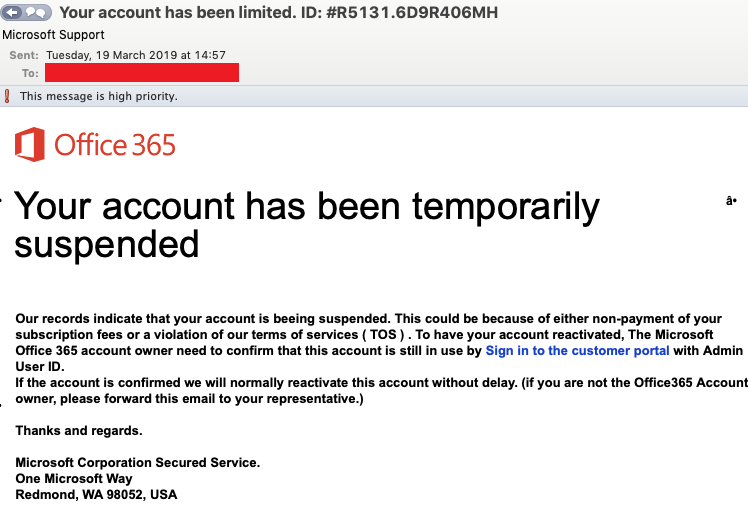Understanding Pancake Day: History, Traditions, And Significance Of Shrove Tuesday

Table of Contents
The History of Pancake Day: A Journey Through Time
Pancake Day's origins are deeply rooted in the Christian calendar. Shrove Tuesday marks the final day before Ash Wednesday, the beginning of Lent – a 40-day period of fasting and reflection leading up to Easter. Historically, Shrove Tuesday held immense significance as a time to use up rich ingredients like eggs, butter, and milk, which were often forbidden during the Lenten fast. This practice gave rise to the tradition of making pancakes, a delicious way to enjoy these ingredients before the period of abstinence.
The history of Pancake Day is a rich and varied one, evolving over centuries and across cultures. While the core concept remains consistent—consuming rich foods before Lent—the specifics of celebration have diversified.
- Origins in pre-Lenten celebrations: The practice of feasting before Lent dates back to pre-Christian times, with various cultures incorporating similar celebratory meals.
- The significance of consuming rich foods before Lent: This wasn't merely about avoiding waste; it was a symbolic act of indulgence before embarking on a period of self-denial.
- Evolution of Pancake Day traditions across centuries: The specific recipes and customs surrounding Pancake Day have transformed over time, influenced by regional and cultural factors.
- Regional variations in Pancake Day celebrations: Pancake Day traditions differ significantly around the world, reflecting the diverse culinary landscapes and cultural practices of different communities. For example, some regions feature savory pancakes, while others focus on sweet varieties.
Pancake Day Traditions Around the World: A Global Celebration
Pancake Day is a truly global celebration, with unique customs and variations adding to its rich tapestry. From the iconic pancake races of Olney, England, to the diverse toppings and fillings across the world, the spirit of Shrove Tuesday transcends borders.
- Pancake races (e.g., Olney Pancake Race): The competitive pancake race in Olney, Buckinghamshire is perhaps the most famous Pancake Day tradition. Women race through the town while tossing pancakes in a frying pan, a spectacle that attracts many visitors.
- Pancake toppings and fillings (sweet vs. savory): While many associate Pancake Day with sweet pancakes topped with lemon and sugar, or perhaps chocolate chips and syrup, many cultures enjoy savory variations. These could include cheese, meats, or vegetables.
- Religious and secular celebrations: While rooted in Christian tradition, Pancake Day is now widely celebrated by people of all faiths and backgrounds. It's a day of community, family, and festive food.
- Family traditions surrounding Pancake Day: Many families have their own special Pancake Day traditions, passed down through generations, adding a personal touch to this widely celebrated occasion. These traditions might involve specific recipes, games, or ways of sharing the pancakes.
The Spiritual Significance of Shrove Tuesday: Reflection and Renewal
Beyond the culinary delights, Shrove Tuesday holds profound spiritual significance for many Christians. It’s a day of reflection, confession, and preparation for the Lenten season.
- Shrove Tuesday as a day of confession and repentance: Historically, Shrove Tuesday (from "shrive," meaning to confess) was a day for Christians to confess their sins and receive absolution from a priest before the penitential season of Lent.
- The connection to Ash Wednesday and the Lenten fast: Shrove Tuesday is the immediate prelude to Ash Wednesday, the first day of Lent, marking a transition from indulgence to self-reflection and spiritual discipline.
- Spiritual significance of the pancake as a symbol: Although not explicitly stated, the pancake itself can be seen as a symbol of the abundance being set aside for a period of reflection and simplification.
- Modern interpretations of Shrove Tuesday’s meaning: Even in a secular context, Shrove Tuesday can be a time for personal reflection, setting intentions, and preparing for a period of self-improvement or renewal.
Celebrating Pancake Day: A Delicious and Meaningful Tradition
Pancake Day, or Shrove Tuesday, is a vibrant celebration with deep historical roots and enduring appeal. From its origins in pre-Lenten traditions to its modern-day global interpretations, this festive occasion unites communities through shared culinary experiences and spiritual reflections. We've explored its history, its varied traditions across the world, and its underlying spiritual significance.
So this Pancake Day, whether you're flipping pancakes with family or learning about the rich history behind this delicious tradition, embrace the spirit of Shrove Tuesday and enjoy the delicious celebration! Get creative with your pancake recipes, share the tradition with loved ones, and experience the joy of this globally celebrated day. Happy Pancake Day!

Featured Posts
-
 Sabrina Carpenter Fortnite Appearance Date And Time Confirmed
May 03, 2025
Sabrina Carpenter Fortnite Appearance Date And Time Confirmed
May 03, 2025 -
 Tensions Rise Tory Chairmans Clash With Reform Uk Over Populism
May 03, 2025
Tensions Rise Tory Chairmans Clash With Reform Uk Over Populism
May 03, 2025 -
 2025 Ps 5 Dual Sense Controller Color Options Stock And Availability
May 03, 2025
2025 Ps 5 Dual Sense Controller Color Options Stock And Availability
May 03, 2025 -
 Daisy May Coopers Weight Loss And Lip Filler Journey
May 03, 2025
Daisy May Coopers Weight Loss And Lip Filler Journey
May 03, 2025 -
 2024s Hidden Ps Plus Gem An Underrated Game You Shouldnt Miss
May 03, 2025
2024s Hidden Ps Plus Gem An Underrated Game You Shouldnt Miss
May 03, 2025
Latest Posts
-
 Office365 Executive Inboxes Targeted In Multi Million Dollar Hacking Scheme
May 04, 2025
Office365 Executive Inboxes Targeted In Multi Million Dollar Hacking Scheme
May 04, 2025 -
 Millions Made From Executive Office365 Account Hacks Federal Investigation
May 04, 2025
Millions Made From Executive Office365 Account Hacks Federal Investigation
May 04, 2025 -
 The Thunderbolts Initiative Can Marvel Revitalize Its Cinematic Universe
May 04, 2025
The Thunderbolts Initiative Can Marvel Revitalize Its Cinematic Universe
May 04, 2025 -
 Marvels Thunderbolts A Critical Look At The Mcus Latest Offering
May 04, 2025
Marvels Thunderbolts A Critical Look At The Mcus Latest Offering
May 04, 2025 -
 Solid U S Job Numbers For April 177 000 Jobs Added 4 2 Unemployment
May 04, 2025
Solid U S Job Numbers For April 177 000 Jobs Added 4 2 Unemployment
May 04, 2025
